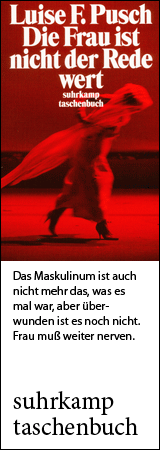
(Johanna Friederike Carillon [birth name])
born on March 24, 1875 in Frankfurt am Main, Germany
died on March 13/14, 1945 in the Ravensbrück concentration camp, Nazi Germany
German politician (SPD), women's rights activist, victim of Nazi terror
150th birthday on March 24, 2025
Biography
Near the house where she once lived, in the Riederwald district of Frankfurt, a square with an underground station is named after Johanna Tesch in commemoration of her “political work and unwavering commitment to human dignity, her fight against unjust conditions and political prejudices, and her courage…. which serve as an inspiration to all in the city of Frankfurt.” (Linda Reisch, head of the cultural department, on the occasion of the unveiling of a memorial plaque)
Johanna Tesch had first-hand experience of the hardships and concerns of working-class women and men. She was practically minded and helpful, and soon after her marriage to Richard Tesch, who was a member of the Social Democratic Party (SPD), she strove to improve working and living conditions, especially for disadvantaged women. She was co-founder in 1902 of the Educational Association for Working-Class Women and Girls (Bildungsverein für Frauen und Mädchen der Arbeiterklasse) and in 1906 she was chairwoman of the Frankfurt chapter of the Association of Domestic Workers (Zentralverband der Hausangestellten).
Up until the end of the First World War, she took on numerous social welfare tasks despite her job and a family with three sons. She played an important role in the SPD in Frankfurt, supporting in particular the younger party members by mediating between members active in various youth organizations and the party elders. Her political work was informed by tolerance and a sense of justice; she was above all kind and altruistic.
When women were granted the right to vote and to stand for parliament for the first time in the 1919 election of the National Assembly, Tesch won the mandate to represent her district in Hesse-Nassau at the Constitutional Convention in Weimar, and she was also a member of the German Reichstag in Berlin for Hesse-Nassau from 1920 until 1924. She recognized the danger posed by reactionary forces early on and spoke out in favor of the various trade unions cooperating. The SPD took advantage of Tesch's excellent public speaking skills and in 1924 she began appearing at events throughout Hesse to speak on topics such as the housing shortage, tax policy, educational issues and also – time and again – on matters specific to women.
When the Nazis came to power and the SPD was banned, Tesch's husband lost his job at the printing works for the SPD party newspaper Volksstimme. Although the family then had to contend with the additional burden of economic hardship, Tesch remained undaunted. Her youngest son Carl managed to escape to Switzerland just after the illegal activities of his group were uncovered and she sent him up-to-date information on Hitler's Germany via cover addresses. With the money that was smuggled to her from Switzerland, she was able to provide covert support to political prisoners and their families. In 1937 or 1938, having managed to visit her son in exile, she also met with leading Swiss Social Democrats. It fell upon her to console and to offer hope for the future to the Swiss comrades who had been disheartened by Hitler's foreign policy successes!
After the failed assassination attempt of July 20, 1944, Johanna Tesch was arrested by the Gestapo on August 22, interrogated for a month and then sent to the Ravensbrück concentration camp. Her husband desperately tried to secure the release of his wife, fearing for her life as she suffered from severe heart and kidney diseases. Johanna Tesch withstood the inhumane and brutal prison conditions for half a year before she died, completely emaciated and shortly before her 70th birthday.
(Text from 2000; translated with DeepL.com; edited by Ramona Fararo, 2025.
Please consult the German version for additional information, pictures, sources, videos, and bibliography.)
Author: Adriane von Hoop
Quotes
We do not share the opinion of our colleague Andre that housewives would then do the work themselves. That is quite unlikely at the moment. Emptying the oven, beating carpets, scrubbing parquet floors – these are not jobs for manicured hands, and the complexions of the ladies would also suffer. (From Johanna Tesch's speech on the situation of domestic workers at the 347th session of the German Reichstag on May 5, 1923)
If you hold the rights to one or more of the images on this page and object to its/their appearance here, please contact Fembio.



